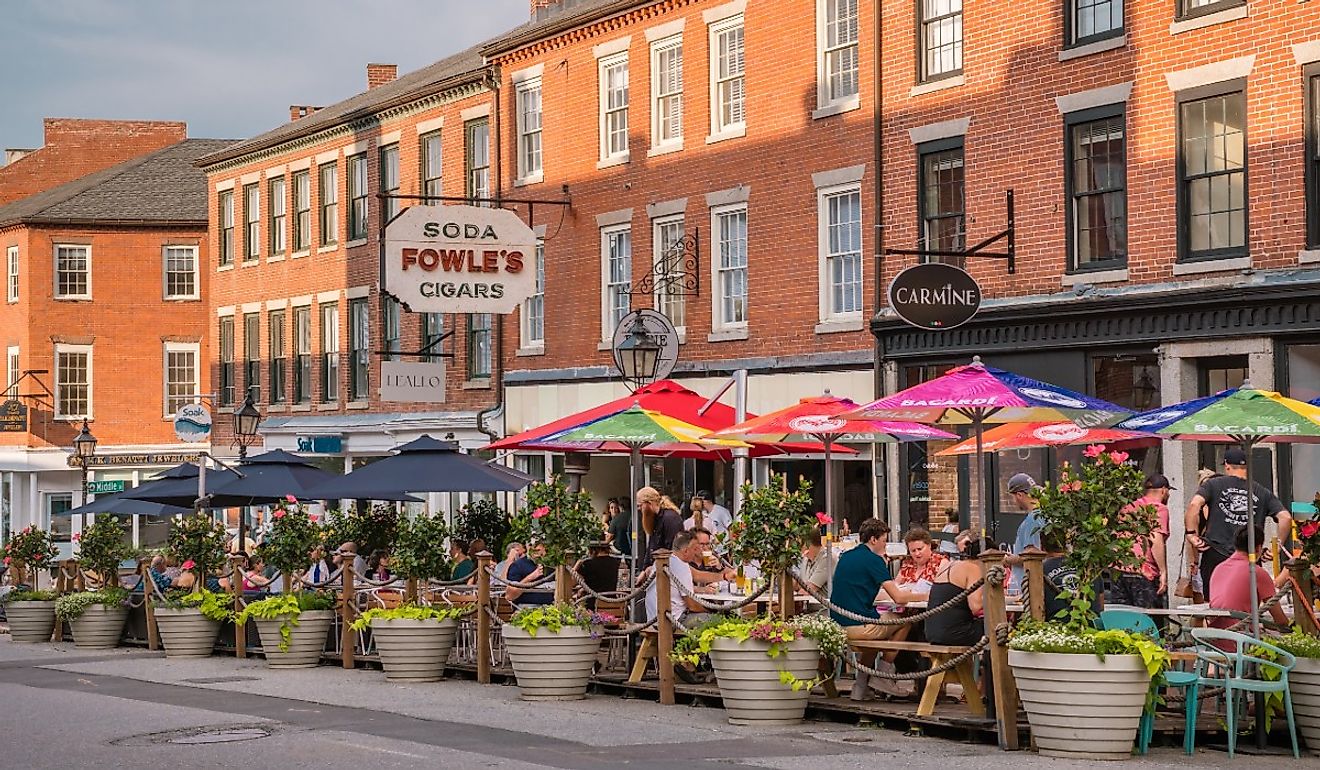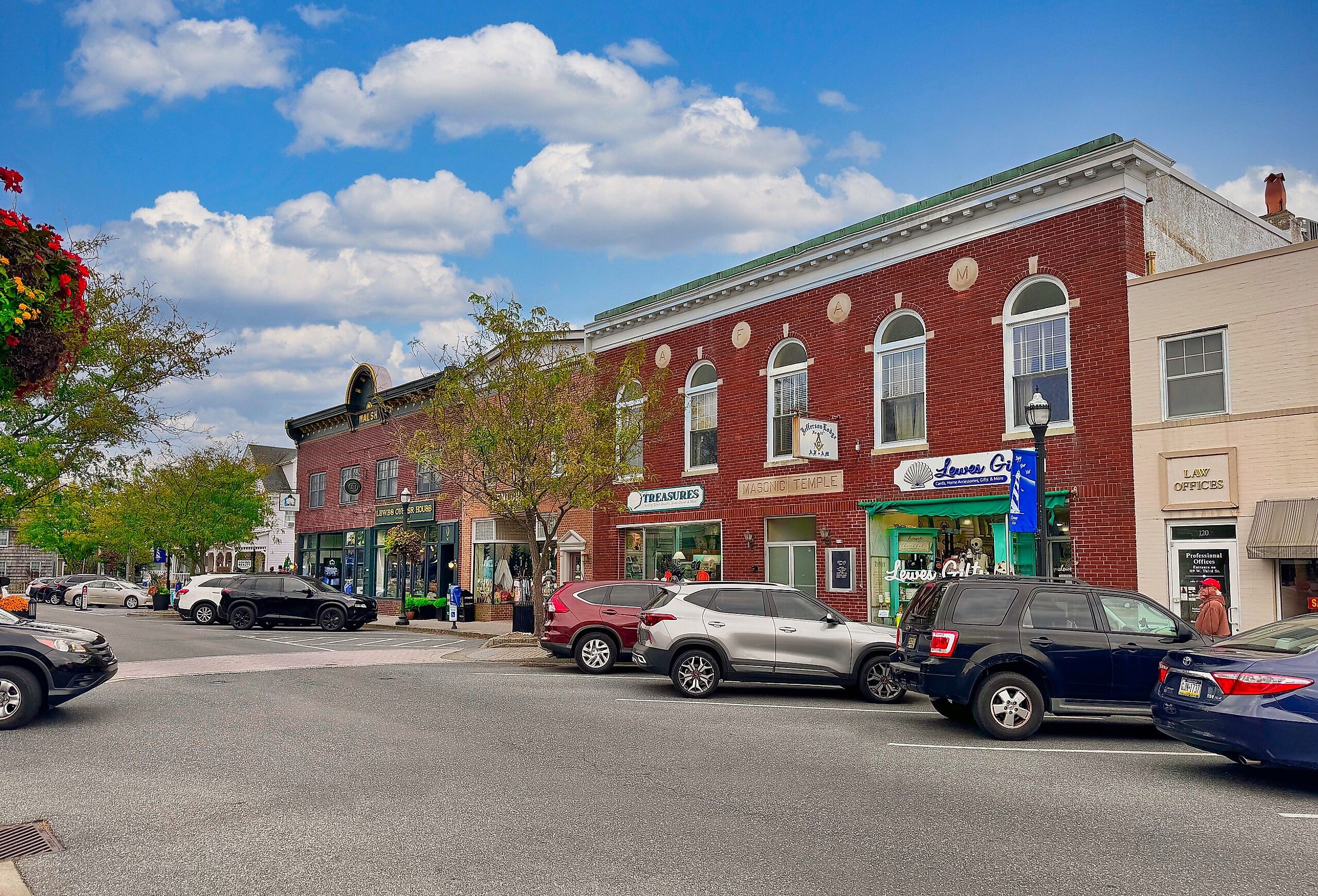
8 Towns in Delaware That Transport You to the Past
Delaware boasts a rich history despite being the second-smallest state in the union. Commonly called the "First State," Delaware played a significant role in forming the United States by having its residents sign the Declaration of Independence and Constitution. Whether you want to learn more about Fort Delaware during the Civil War in Delaware City, see the Old State House in Dover, or take part in a colonial tradition in Georgetown, these historic towns in Delaware will undoubtedly transport you to the past.
Delaware City
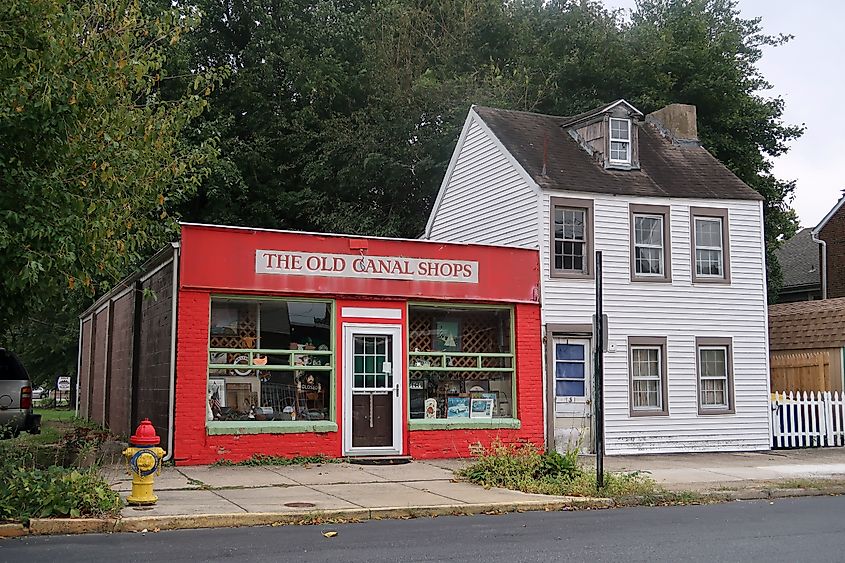
Delaware City is a charming, historic waterfront village with a rich past. During the Civil War, Confederate troops were held at Fort Delaware as prisoners. Today, it has been transformed into Fort Delaware State Park. Situated on Pea Patch Island, a short ferry ride from Delaware City will get you there. The park allows visitors to see what it was like back in the day with tours of the parade field and other notable sites, stories of spectacular escapes, and discussions with fort historians.
For a comfortable and convenient place to stay in Delaware City, enjoy the coziness of Miss Helen's Guesthouse, a Victorian house built in 1900 that offers lovely accommodations with all the comforts of home. The Canal House, another relaxing lodging option, dates back to the 1830s. Initially, it was a two-story mule barn used to pull barges across the C&D Canal. Stroll downtown or spend the rest of the day at Delaware City Marina for more exploration.
Dover
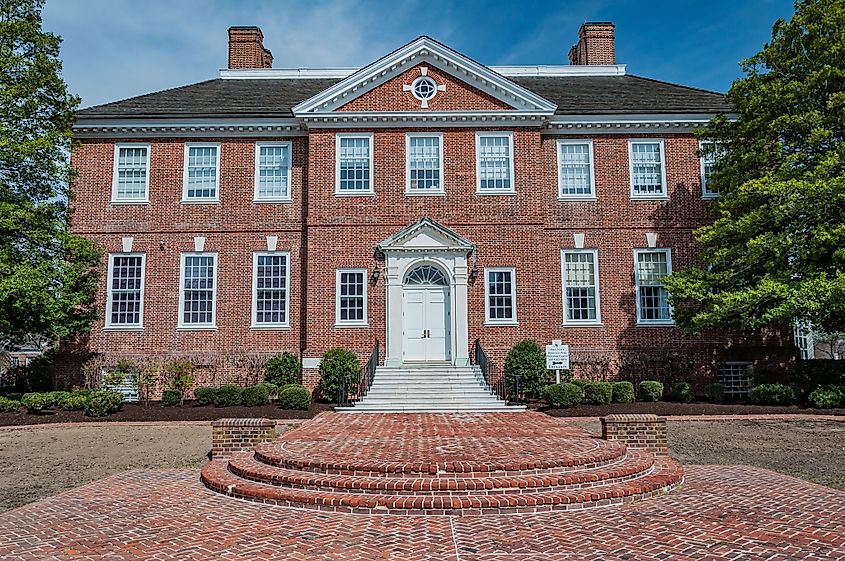
The capital of Delaware, Dover, is home to several museums that cover everything from modern art to American history. Stop by Biggs Museum of American Art for a diverse collection of fine art and exhibits. Visit the Old State House, which was constructed in 1791. A trip to Dover must include a few stops that honor some of Delaware's most notable figures. The Johnson Victrola Museum pays tribute to the life and legacy of Eldridge Reeves Johnson, a recording industry pioneer, inventor, and successful businessman during the first quarter of the 20th century.
Inside the museum, expect to see exhibits and artifacts associated with the origins of the recording industry and Johnson's career. Another point of interest in this historic town is the John Dickinson Plantation, where John Dickinson, known as the "Penman of the Revolution," lived in his early childhood. Today, it serves as a museum with guided tours.
Seaford
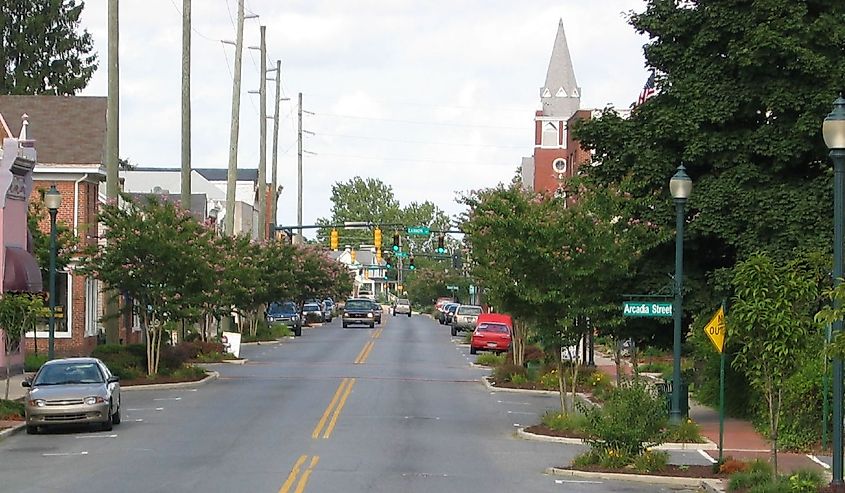
Seaford, nestled along the Nanticoke River, is a peaceful retreat. The Seaford Museum provides a tranquil journey through the town's past, including the region's natural riches, the Nanticoke Indians, and the invention of the nylon spinning machine, the first synthetic fabric in history.
Visit the Governor Ross Mansion, a stunning Italian Renaissance-style house once the residence of Delaware Governor William Henry Harrison Ross. Guided tours of the home and its grounds offer a look at life before the Civil War. The 20-acre site features a granary with farm equipment exhibits and the only known log slave quarters in Delaware.
Lewes
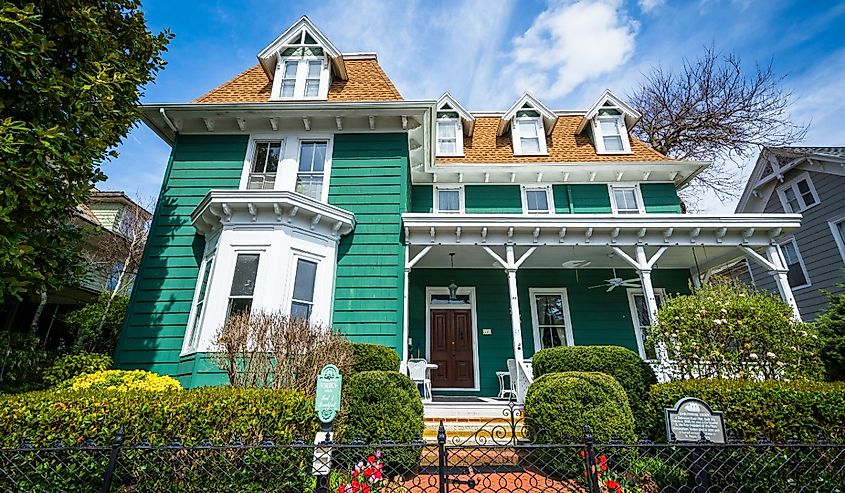
Lewes, where Delaware Bay and the Atlantic Ocean converge, is another town in Delaware that will take you back in time. Since its founding in 1631, the town's residents have taken great interest in its historic legacy, showcased at the Zwaanendael Museum. The Cannonball House in Lewes, which got its name by being struck by a cannonball in the War of 1812 and restored by the Lewes Historical Society, now contains the Lewes Maritime Museum, another popular attraction.
When people think of Lewes, they often think of Cape Henlopen, which has long been a public-use area. It officially became Cape Henlopen State Park in 1964. Many people frequent the park for its beaches, trails, and water activities.
Smyrna
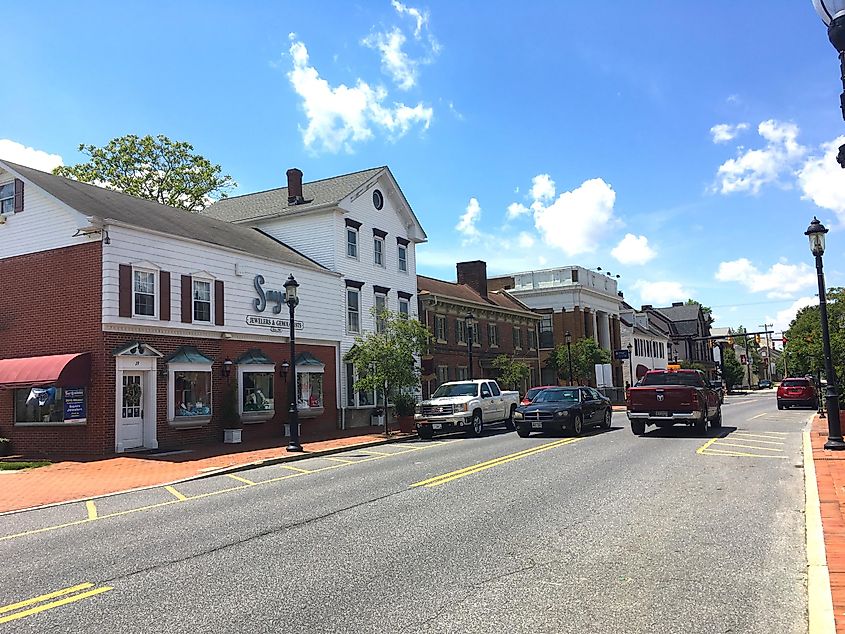
Before the American Revolution, Smyrna was first populated on the bank of the pristine Duck Creek. This small community was formerly called Salisbury in 1716. However, its residents also called it Duck Creek, and it quickly became a bustling merchant vessel neighborhood. It also has a rich architectural heritage with historic homes, stores, and churches.
Make plans to stop by the Smyrna Museum, which houses The Plank House and The Barracks, two buildings that date back to the 1700s. A significant highlight of the Symrna arts and culture scene is the Smyrna Opera House. Built in 1870, it has been fully restored and serves as a performing arts venue for the community.
Odessa
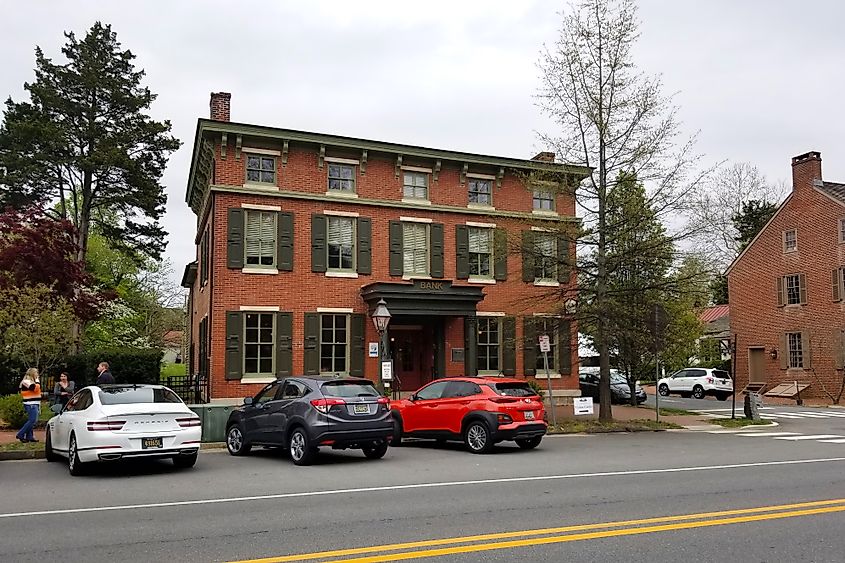
Odessa, once known as Cantwell's Bridge, was a bustling grain transport terminal crucial to the Delaware River's commercial economy. Today, Odessa is a charming town that will enchant you as you take a pleasant stroll along its tree-lined streets and admire the beautiful 18th- and 19th-century architecture. A visit to the Historic Odessa Foundation is a must to delve deep into Odessa's rich history.
Guided tours of historic homes, such as the Wilson-Warner House, the Corbitt-Sharp House, and the Collins-Sharp House, one of the oldest homes in Delaware, offer a fascinating journey through time. The site is also home to the Cantwell's Tavern, a restaurant initially known as the Brick Hotel in 1822.
Georgetown
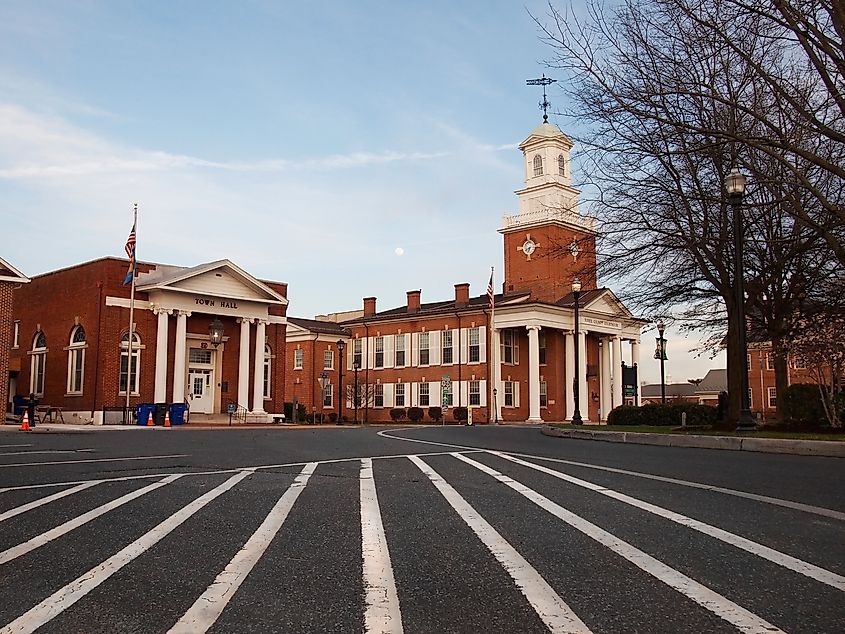
Explore Georgetown's historic structures, such as Georgetown Town Hall and the Sussex County Courthouse, before heading to the Marvel Carriage Museum, which has a remarkable collection of antique carriages. Find numerous original and restored buildings, including two barns and the Ellis School, a one-room schoolhouse built in 1833 on the museum grounds.
Every two years, Georgetown residents celebrate Return Day, a colonial tradition. The town hosts a procession and celebration for election winners. Return Day honors how news of the winners arrived in the past—by horseback—and is symbolically observed two days after Election Day.
Laurel
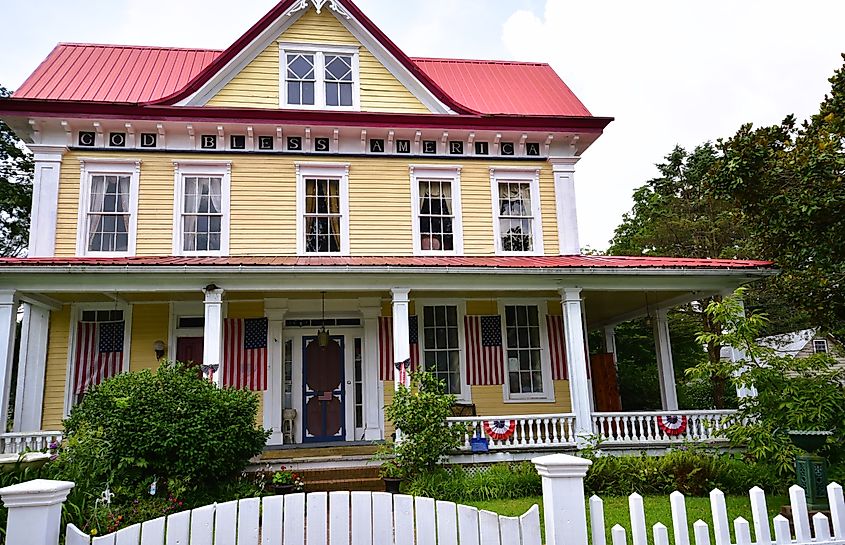
Although Laurel's history began in the late 1600s, it was not recognized as a town until 1883. To get a glimpse of early life in Laurel, visit the Laurel Heritage Museum, housed in the former Laurel Train Station. The station served as a welcome area for visitors arriving by train and when locals departed to serve during World War II. Laurel is also home to Old Christ Church, built in 1772. The northernmost naturally occurring stand of bald cypress trees is at Trap Pond (east of the townsite), first utilized as an industrial logging pond in the late 1700s. In 1951, Trap Pond became one of Delaware's first state parks, offering visitors more than 3,600 acres of hiking, camping, kayaking, and canoeing.
Explore These Historic Towns in Delaware
The hidden historic gems of the First State await your discovery. Although Delaware is a small state, it is rich in history that transports you to the past. From Delaware City to Laurel, as you wander through its historic towns, you will feel a connection to the generations that came before. It's a place where the past and present intertwine, creating an unforgettable experience.






